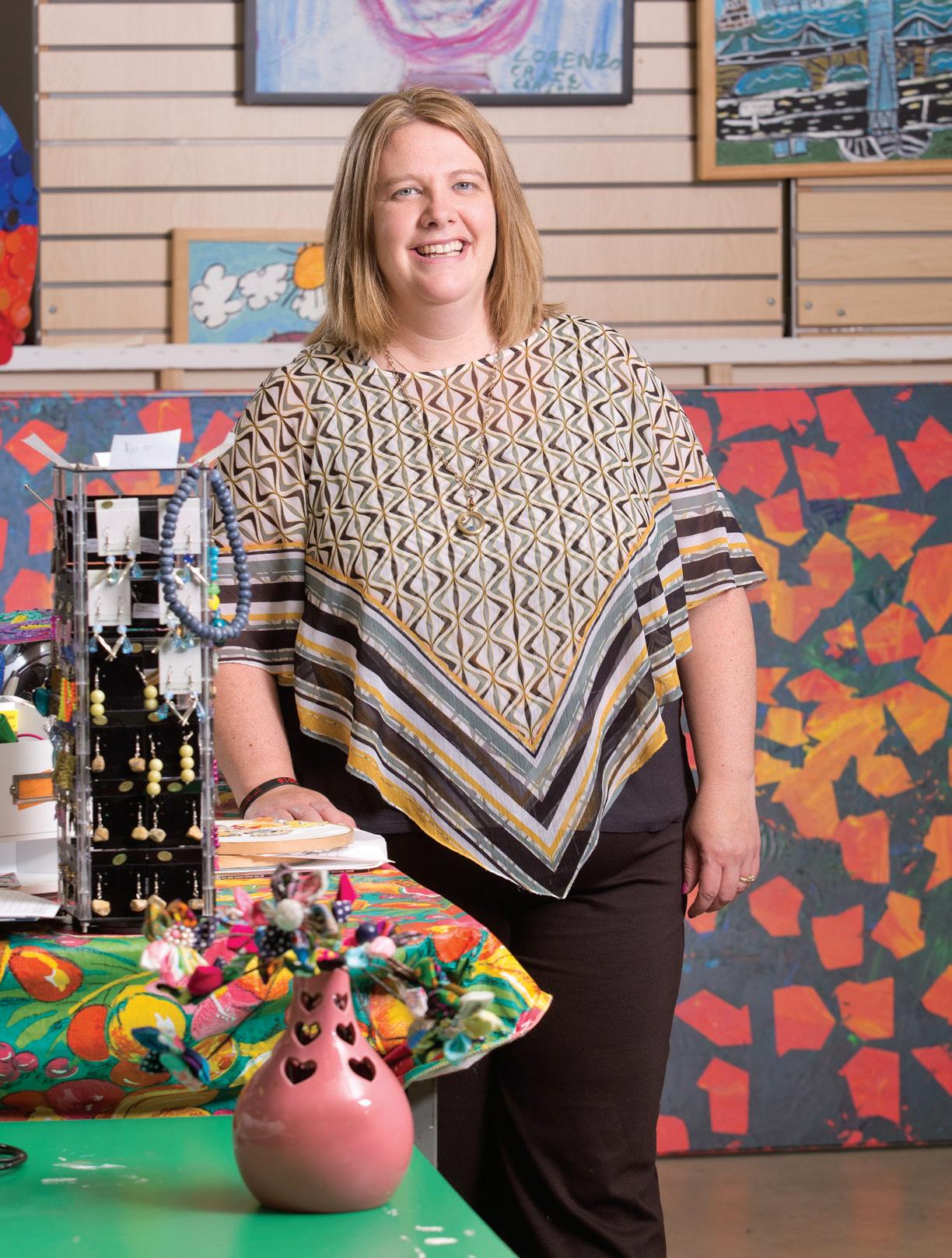
3 minute read
Laura Dalton
The Arc Ind ust ries out rea ch coordi nat cha mpions peopl e wit h di sa biliti es. or
By Brittany Moseley dispatch magazines
Laura Dalton began working full-time with people with developmental disabilities in 2000—at least officially. Unofficially, her career began as a 16-year-old Girl Scout. During camp counselor training, Dalton was part of the Special Friends Unit, which included Girl Scouts with and without disabilities. She fell in love with the work and would go on to study therapeutic recreation in college.
“Since that summer, I knew that this was what I wanted to do,” Dalton said. “It was the personal connection. It was seeing people do something for the first time and [it was] like, ‘Wow, I can do this,’ kind of amazement. They were so happy.”
Today, Dalton is a training supervisor at Arc Industries, a nonprofit that serves people with disabilities through vocational training, work placement, habilitation and community outreach, the latter of which Dalton oversees at the Arc West office. She began working at Arc in July 2018. Before that, she spent 17.5 years at the Association for the Developmentally Disabled, or ADD.
Through ADD, she contracted with Arc. “When I was with ADD, I worked in all of the Arc Industries buildings. When you walk in, you feel like a movie star. Some people will come running up to you and give you a hug. It’s just a great feeling. You don’t necessarily get hugs at all jobs, but you definitely do here,” Dalton said.
As the supervisor of the community section, Dalton coordinates volunteer and recreation opportunities. The goal is for the people Arc serves to become active members of their communities, whether that means attending a yoga class or volunteering at the Ronald McDonald House.
Dalton also helps supervise the PIECE Project, a collaboration between Arc, Ohio State University’s Nisonger Center and the Franklin County Board of Developmental Disabilities. PIECE—which stands for Pre-Vocational Integrated and Educational Campus Experience—helps individuals with disabilities discover what kind of work they’d like to do through job shadowing, informational
Photo by Tim Johnson dispatch magazines
interviews, internships and career assessments.
“We want the community to see people with disabilities as the ones giving services rather than receiving services,” Dalton said.
That mission is an ongoing one for Dalton, and while the public mindset about people with disabilities has evolved over the years, she said there are still barriers left to break down.
“A lot of times if you call somebody and say, ‘We want to have a group of people with disabilities come and volunteer at your location,’ the answer is typically, ‘My manager will get back to you.’ But if you go in and you’re in the community and people see you, that’s the way that we’ve started to change the minds of people, just by being present and being active.”
Dalton’s colleague John Wick, a supervisor at Arc West, said her dedication to the people she serves and her patience and optimism are what make her great at her job.
“She’s very conscientious of the end customer and what their experience is going to be,” Wick said. “She likes to do things right so it’s not just, ‘Well let’s just get something done.’ That separates someone from a reasonable employee to an exceptional employee.”
Fellow Arc West supervisor Robin Rexroad agrees. “She has zero boundaries. She is open to anything that anyone is interested in. She doesn’t see any limits for anyone,” Rexroad said. “She will help them achieve any goals, aspirations they have.”
As a 16-year-old, Dalton fell in love with this work because of the personal connections it created. It’s the same reason she continues the work today.
“I’m here to serve them,” Dalton said of the people who come to Arc Industries. “I’m here because I love them, and even if it’s a small win and I see somebody smile for the first time or volunteer some place that they’ve never been before, those little things that happen, that’s what keeps me coming back: seeing somebody do something that they didn’t think they could do.” H










